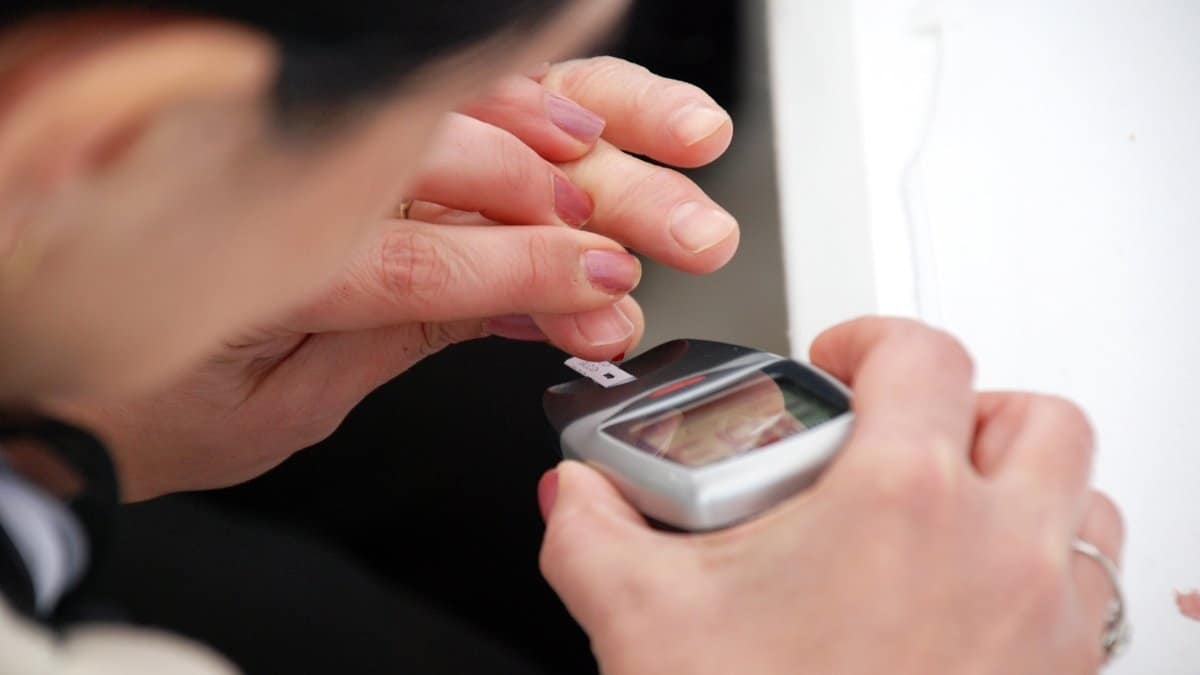“Researchers estimate that 34 million people living in the United States have diabetes.”
Diabetes is a disease in which the blood sugar or blood glucose levels become too high resulting in insulin resistance or less production in the body. Long term exposure to such a metabolic disease leads to serious damage to the heart, blood vessels, eyes, kidneys and nerves.
A chronic illness like diabetes needs to be managed with caution if one wants to avoid the risk of a life-threatening medical emergency like a diabetic coma.
What Is Diabetic Coma?
A diabetic coma is a situation of a medical emergency in which a person’s blood sugar levels either elevate or decrease, causing unconsciousness. A person who gets in a state of diabetic coma cannot respond to the environment.
A state of high blood sugar(hyperglycemia) or low blood glucose (hypoglycemia) is likely to lead to a diabetic shock. In severe cases, delay in treatment may lead to brain damage or sometimes death.
Type-1 and type 2 diabetes may cause diabetic coma, making it a possible threat. One should always try to look out for certain symptoms of diabetic coma which can help in getting immediate medical attention.
Medicines for Type 2 Diabetes Mellitus:
Metformin(Glycomet), Linagliptin(Trajenta), or Glibenclamide(Semi Daonil)
What Are the Symptoms of Diabetic Coma?
Whether the blood sugar levels increase or fall, the symptoms of diabetic coma will always be there before a person falls unconscious. The symptoms of diabetic coma can be defined in two specific categories.
Symptoms of High blood sugar level:
One may experience the following symptoms if the blood sugar levels get too high.
- Feeling thirsty increasingly
- Frequent urination
- Nausea and vomiting
- Shortness of breath
- Increased heart rate
- Abdominal pain
- Fatigue and tiredness
- Having a dry mouth
- Fruity smell to the breath
- Feeling drowsiness
- Having flushed or dry skin
Symptoms of Low blood sugar level:
One may experience the following symptoms if the blood sugar levels drop to an abnormally low level.
- Sweating
- Headaches
- Dizziness or lightheadedness
- Difficulty in speaking
- Nervousness or shakiness
- Fast breathing
- Increased hunger
Diabetes patients should routinely check their blood sugar levels. Such symptoms could prove to be symptoms of diabetic coma as well.
When a person goes under a diabetic coma, emergency symptoms like difficulty in breathing and vomiting are likely to occur. It is of vital importance for a diabetic patient to seek proper medical treatment that can help in managing blood sugar levels.
Also Read: Diabetes: World’s 7th Noncommunicable Deadly Diseases
What Are the Risk Factors of Diabetic Coma?
All diabetes patients do face the risk of suffering a diabetic coma. However, there are some risk factors that put diabetic patients at a high risk to become a victim of diabetic coma. Some of the risk factors of diabetic coma are as follows.
Insulin deficiency:
Sometimes, while taking insulin through a pump one can face difficulty due to the possibility of a pump failure. This can lead to a lack of insulin in the body which can result in a diabetic coma.
People diagnosed with type 1 diabetes require more insulin as they have a wider range of blood glucose levels than people who have type 2 diabetes. One should always be vigilant enough while taking insulin. Keeping a check or monitoring the blood sugar levels frequently can help in averting the risk of a diabetic coma.
Alcohol intake:
The risk of getting a diabetic coma increases if one takes in excessive amounts of alcohol. Alcohol can make it hard for one to clearly identify the symptoms of a diabetic coma. One may find it hard to know whether the blood sugar levels are low or not, increasing the chances of going under a diabetic shock.

Managing diabetes:
People who have been diagnosed with diabetes are advised by medical professionals to monitor their glucose levels at regular intervals and the medications as advised.
However, long term exposure to poorly managed diabetes puts an individual at high risk of suffering from a diabetic coma. Treating a chronic disease like diabetes lightly can lead to life-threatening consequences.
Medical issues:
When one becomes ill or suffers a traumatic injury, the blood sugar levels normally tend to rise. Such issues are a major risk factor, especially for people who have been diagnosed with type 1 diabetes.
If they do not take the required insulin dosage in time, it may lead to a diabetic coma. Diabetic patients are always advised to be touched with a medical professional, to avoid the risk of major medical complications.
Substance abuse:
People who become addicted to illegal and harmful drugs like cocaine, marijuana and ecstasy can face life-threatening medical complications.
Such substance abuse leads to increased blood sugar levels in the body which puts an individual at a high of going into a diabetic coma. One should avoid such unhealthy lifestyle habits if one wants to live a healthy and long life.
Takeaway
A medical complication like a diabetic coma is fatal, one can lose his or her life if the right treatment is not received in time The risk of possible brain damage and death is always there. That is why doctors often emphasize the importance of managing blood sugar levels. It is always essential to keep a regular check on blood sugar levels.
Many prediabetic patients can prevent diabetes by bringing in certain life changes. Healthy lifestyle choices like eating a nutritious diet, exercising regularly and managing excess weight can go a long way in treating diabetes.
One need not worry about a life-threatening medical emergency like a diabetic coma if one takes proper care of his or her health and leads a healthy lifestyle.











